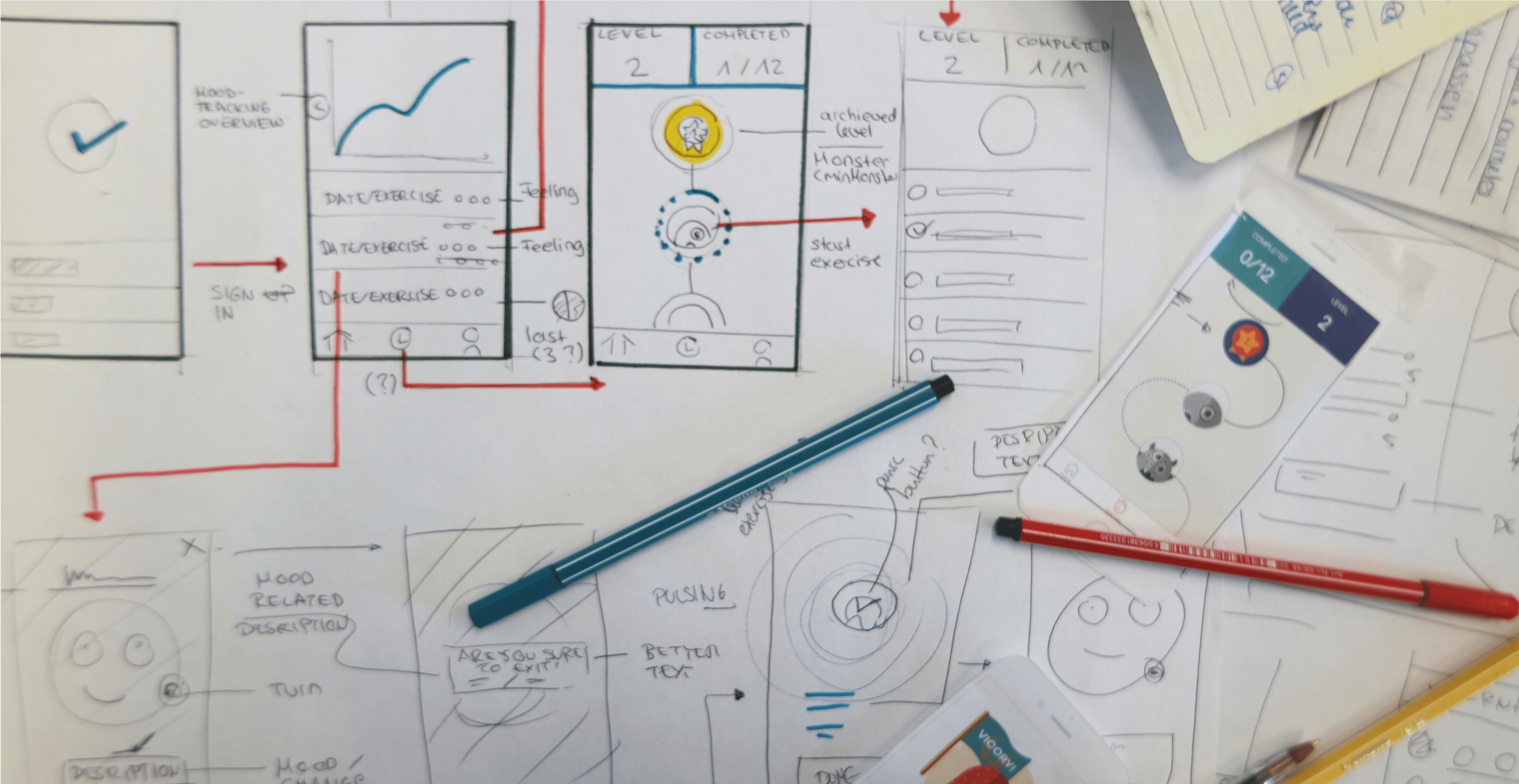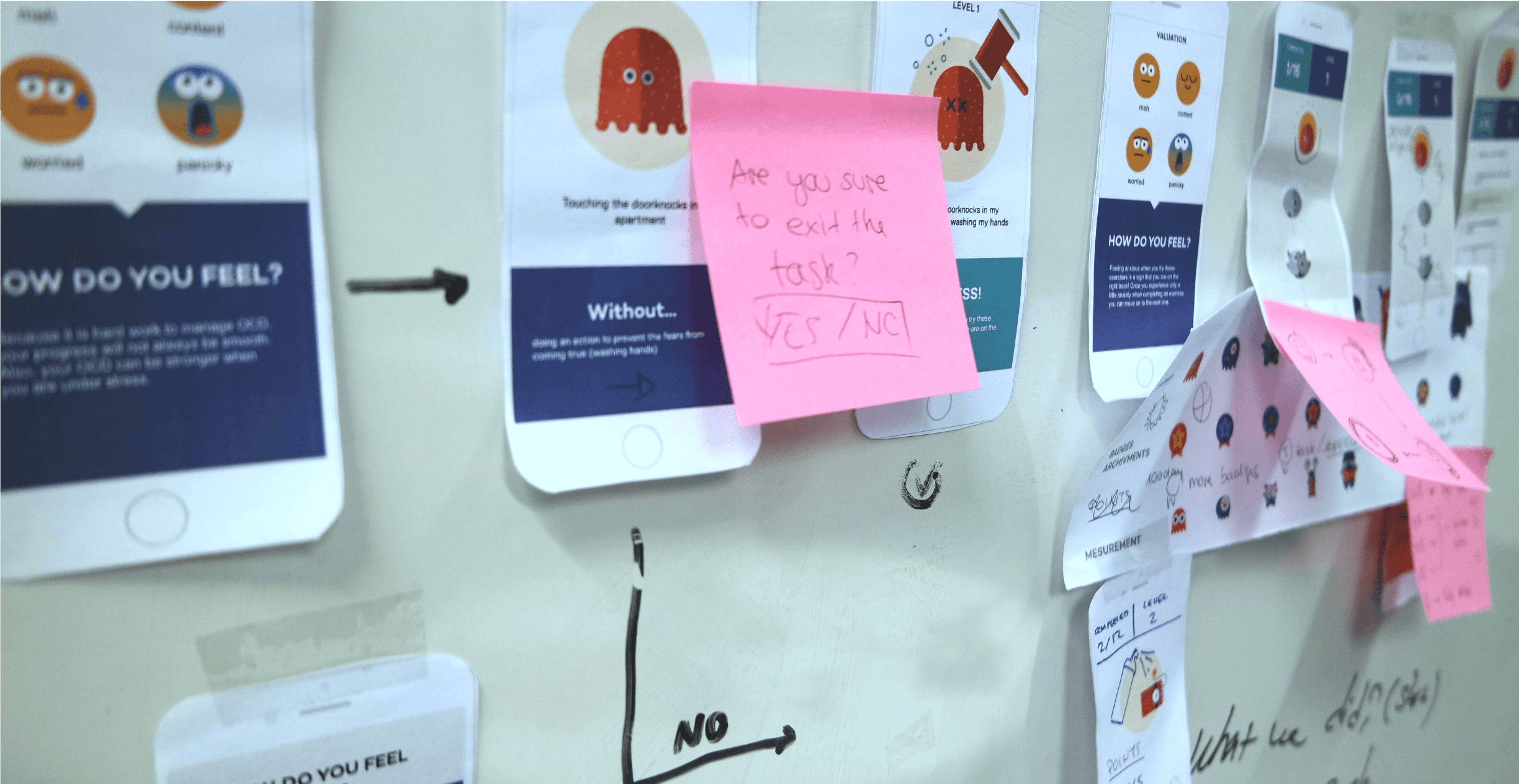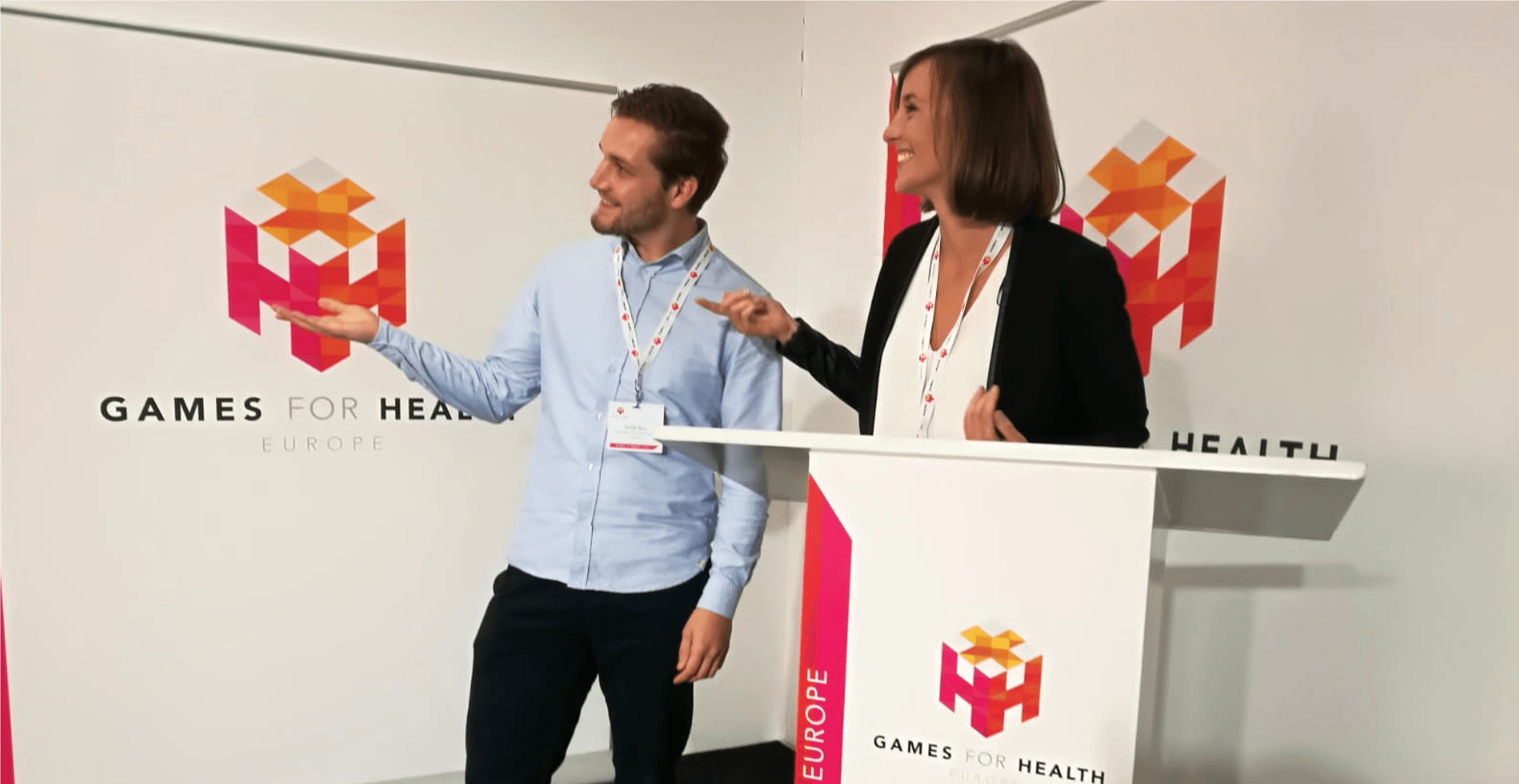Spirit,
- AWS Amplify
- Angular
- Highcharts
- Heroku
- Ionic
A monster in my mind
OCD has had a profound impact on my life, muffling my school grades, discontinuing my social life and even forcing me to drop out of university.
Problem
Obsessive-Compulsive Disorder (OCD) can be a debilitating condition that is characterized by unreasonable thoughts and unwarranted fears, often referred to as obsessions, that can cause significant distress and anxiety in affected patients.
Fortunately, Cognitive Behavioral Therapy (CBT) involving Exposure Response Prevention (ERP) has been proven to be an effective treatment for OCD.
However, a significant number of patients drop out of therapy early, and many do not perform the exposure exercises between sessions because they lack the necessary guidance to monitor their progress and stay motivated.
Challenge
How can we engage patients following the Cognitive Behavioral Therapy (CBT) in a more meaningful way so that they keep being engaged with their exercises in between sessions.

Outcome
Empowering patients to do their exposure exercises on a regular basis by making mood tracking more accessible and engaging through gamification and playful design, creating a safe and comfortable environment for patients to do their exercises.
Spirit is suitable to be applied for self-treatment or, preferably, under the auspices of an expert therapist.
Worry less
Live more
Gamification for behavior change
By implementing gamification techniques we try to empower patients to improve their life by helping them to understand the benefits of following the Exposure Response Prevention (ERP) therapy in a playful way.
What is your mood?
Narrative
Spirit emphasizes patients’ compulsions as the monsters they sometimes feel in their minds. By completing exposure exercises the monsters will shrink into unharmful babies which can be controlled by the patient.
For the basis of the narrative within Spirit, we make use of the Avoidance hierarchy.
The avoidance hierarchy, often visualized as a ladder, is a Cognitive Behavioral Therapy (CBT) worksheet that represents a fear or avoidance hierarchy that helps patients to plan exposure tasks.
Each level in this ladder will be externalized by a different monster in Spirit to represent their problematic obsessive thoughts and compulsive behaviors.
Monsters representing the Cognitive Behavioral Therapy (CBT) worksheet ladder
Playful
Spirit is making use of playful design to make mood tracking more accessible and engaging.
Before and after each exposure exercise patients will be prompted to rate their anxiety as well as the urge for obsessive thoughts or compulsive behavior.

Quantified self
By giving insights into performed exercises patients will be guided into performing their exercises on a regular basis. The patients will be able to see the effect of their Exposure Response Prevention (ERP) treatment progress outside of the sessions with their therapist.
All exercises will be kept in a local diary for the patient to reflect upon and gain insight into their progress over time.
Entries can be shared with the therapist only if the patient desires so.
Goals & nudges
Setting a long term goal will remind the patient of their intrinsic motivation for doing their exercises.
Besides this Spirit provides short term goals in the form of badges which can be earned by doing your exercises on a regular basis, nudging you to achieve your long term personal goal.
